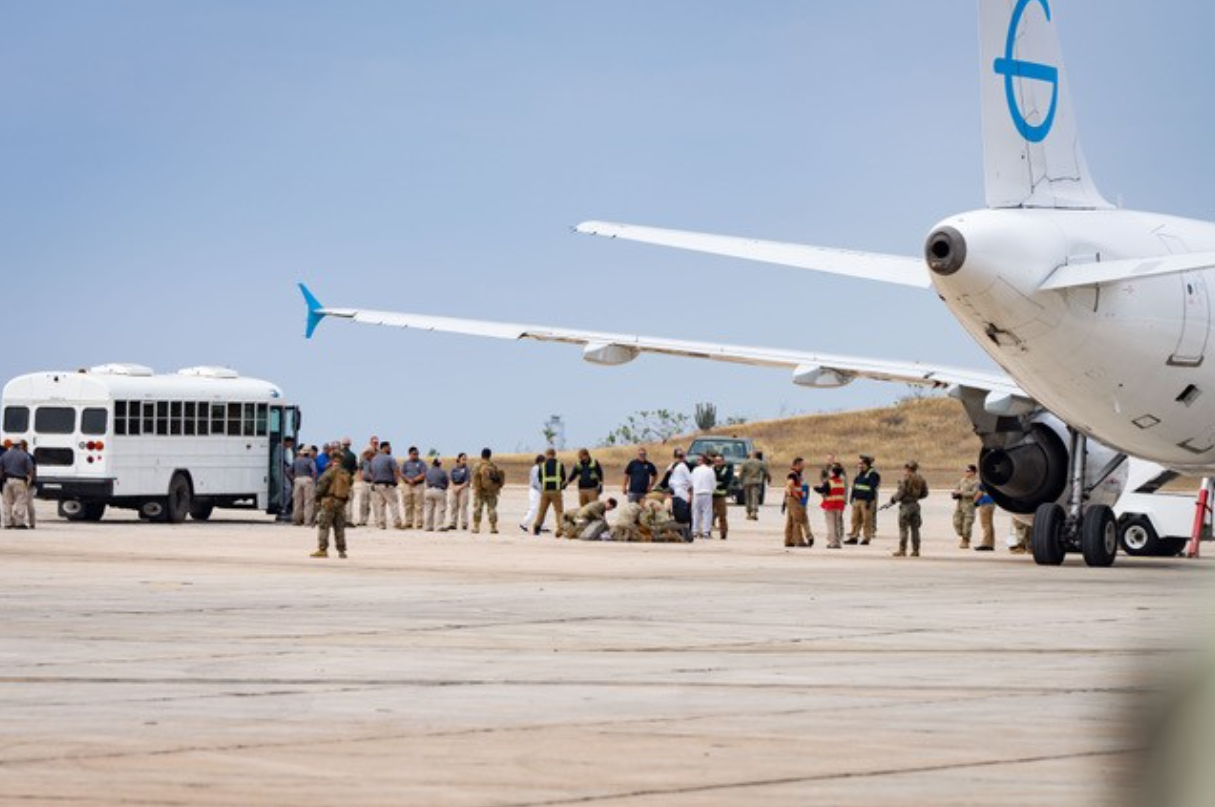Eleven individuals, recently deported from the United States to Ghana, have initiated a lawsuit against the Ghana government, claiming they were unlawfully detained in a military facility. This legal action highlights the complex aftermath of the deportations, which have left many individuals displaced and “dumped” into various neighboring countries.
The group of deportees includes nationals from multiple West African countries, none of whom hold Ghanaian citizenship. According to lead attorney Oliver Barker-Vormawor, the initial group of 14 deportees arrived in Ghana on September 6, 2023. That same night, three were deported back to their home countries, while the remaining eleven were taken to a military detention center. Out of these, ten were subsequently deported despite ongoing legal proceedings, with reports indicating that eight ended up in Togo.
The deportations are part of a controversial “third country deportation” agreement established between the US and Ghana earlier this year. This arrangement has prompted criticism from Ghana’s parliamentary minority party, which has called for its suspension. Samuel Abu Jinapor, the Ranking Member of the Foreign Affairs Committee, argued that the government’s actions violate constitutional provisions. He stated, “The government’s conduct in operationalizing the agreement with the United States without parliamentary ratification is a direct constitutional violation of Article 75 and an affront to the authority of the Ghanaian Supreme Court.”
In defense of the agreement, Ghana’s Foreign Minister Samuel Okudzeto Ablakwa emphasized that the decision was not intended to signal support for US policies but was instead based on humanitarian concerns and a sense of Pan-African solidarity. Despite this rationale, reports suggest that the Ghanaian government may hope the US will consider lifting travel restrictions on Ghanaians entering the US as part of the broader negotiations.
The legal situation is further complicated by a ruling from the US Supreme Court, which in July permitted the Trump administration to pursue third-country deportation agreements with several nations, including Costa Rica, El Salvador, and Rwanda. International organizations have expressed concern that such policies could endanger vulnerable individuals and undermine governmental accountability.
The lawsuit filed by the deportees in the US details their harrowing experience during the deportation process. They reported being taken from an immigration facility, shackled, placed in straitjackets, and transported to Ghana in a cargo plane without adequate notice or legal representation.
As the legal proceedings unfold, the implications of these deportations continue to resonate across West Africa, raising significant questions about human rights, governmental authority, and international cooperation.






































































